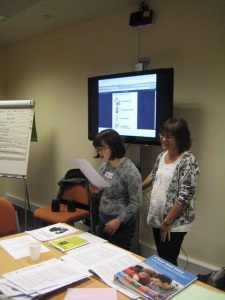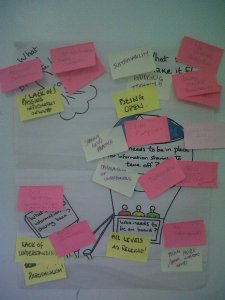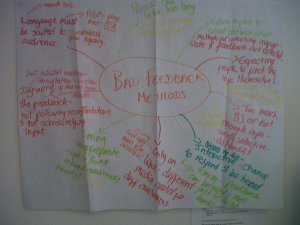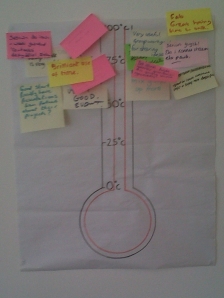Presentations created using PowerPoint have been a large part of the business world for the past 20 years. A presentation is a speech that’s meant to inform, persuade or build good relationships; the slides that appear behind the speaker are there to compliment their words. The concept of presenting in this style is here to stay, but why do traditionally styled presentations seem so boring these days?
So often, slides will contain things likely to cause the audience to quickly lose interest:
- Paragraphs of text (it’s not easy to read slides and listen to the speaker at the same time)
- Spinning, twisting, flying or flashing graphics (don’t give your audience a headache!)
- Generic, clichéd images of integral cogs, smartly-dressed people standing over a monitor or a classic ‘thumbs up’.
All of these common features seen in presentations have helped coin the phrase ‘death by PowerPoint’ .
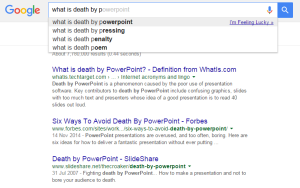 The BBC’s article How to avoid ‘death by PowerPoint’ lists some of the overused and almost cringe-worthy clichés that you’ve quite likely had to sit through with stifled yawns at some point during your life.
The BBC’s article How to avoid ‘death by PowerPoint’ lists some of the overused and almost cringe-worthy clichés that you’ve quite likely had to sit through with stifled yawns at some point during your life.
But what are the alternatives?
Before you start designing slides, you need to recognise your own presentation style or rhetorical stance, identify the purpose of your presentation and most importantly: the needs of the audience you’ll be presenting to and how to get the message across in an understandable, engaging way. Do you even need slides or will your words be sufficient?
If you do opt for slides there are many alternative types of software to try if you want to avoid using traditional PowerPoint in your future presentations, there’s Prezi which is quite widely used – its key feature being its zooming user interface which allows you to zoom and rotate into each slide, but try not to overuse this feature.
There’s also Keynote for Mac and iOS. The latest version of Microsoft PowerPoint also has some exciting features such as its slide designer and 3-D animator.
Visual content
‘Frequently in good presentations, photos serve well in a metaphorical or conceptual sense, or to set a backdrop tone for what the audience is hearing from the presenter, and not necessarily to communicate actual content’. Aaron Weyenberg
One of my personal pet peeves with presentations is when the slides repeat – almost word for word – exactly what the presenter is saying. My personal choice is for there to be as few words on a slide as possible (preferably none at all). The photographs you choose as your backdrop will help set the tone for the point(s) you’re making so, whilst avoiding the clichéd thumbs up and cogs, this is also an opportunity to get creative with your visual content; find a free stock photo using Pixabay, create an info-graphic using Easel.ly or Canva or even take your own photographs to accompany your presentation.
It’s your performance!
Any form of presentation or public speaking requires you to perform and adopt a persona, mostly because it’s a daunting task and even the most experienced of public performers will get nerves – this is completely normal. A good idea is to concentrate on your body language – social psychologist Amy Cuddy’s research shows that by standing in a posture of confidence can affect certain neurotransmitters in our brain and have an impact on our chance of success, even if we’re not feeling particularly confident at the time – the important thing is to act confident.
Don’t forget what makes your heart sing
If you’re passionate about the topic you’re speaking about then this will show. Steve Jobs says “Be authentic: don’t let the noise of other’s opinions drown out your own inner voice” – get inspired by your topic in order to inspire your audience.
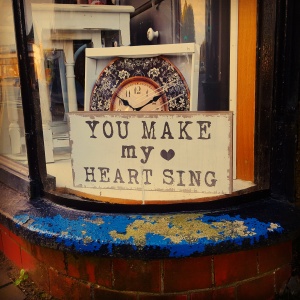
Photo credit: tamsininnit
We recently held a training course ‘Designing and delivering brilliant presentations’ with the aim of developing skills in creating and delivering presentations that will make a real difference. The learners will also have a chance to design their own presentation and attend a follow-up session with their fellow learners, deliver their presentations and gather feedback. We can also deliver this course in-house for organisations; get in touch to discuss your learning needs.
Have you got any other tips for designing or delivering presentations? Please leave a comment below to share your ideas and experiences.
– Sarah

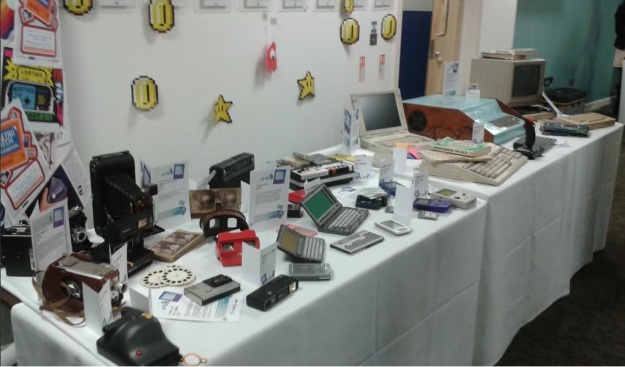

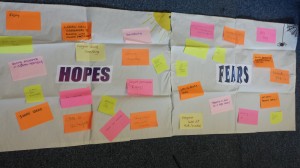




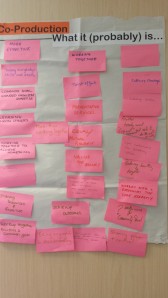
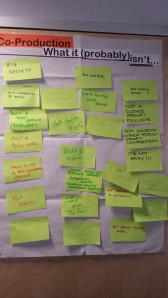
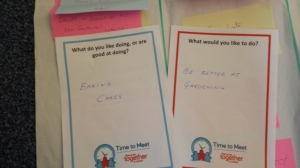

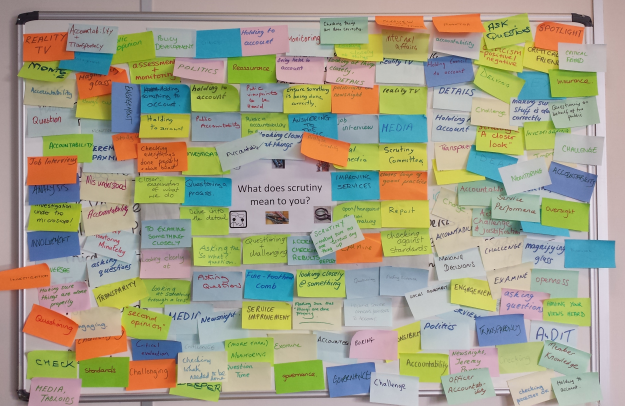
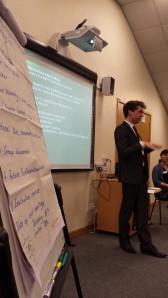
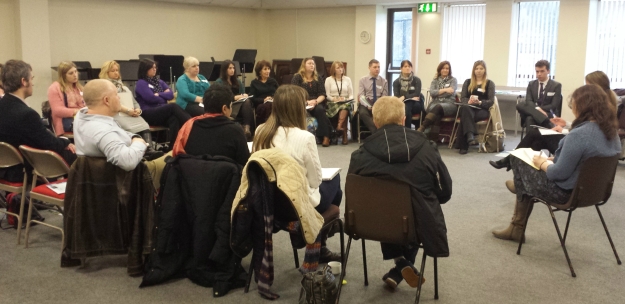
 We started each session with an ice-breaker exercise to introduce the theme, half of the participants were given a ‘jargon card’ and the other half given an ‘easy-read card’. Each card contained just one word and the aim of the game was to walk around the room and find the person with the word card which had the same meaning as yours. For example if you had a jargon card which said ‘participate’ then you would be partnered with the person who had an easy-read card saying ‘take part’ and then introduce each other. Other examples of words we used in this icebreaker were endeavour (try), discontinued (finished) and collaborate (work together). We took some of these words from the
We started each session with an ice-breaker exercise to introduce the theme, half of the participants were given a ‘jargon card’ and the other half given an ‘easy-read card’. Each card contained just one word and the aim of the game was to walk around the room and find the person with the word card which had the same meaning as yours. For example if you had a jargon card which said ‘participate’ then you would be partnered with the person who had an easy-read card saying ‘take part’ and then introduce each other. Other examples of words we used in this icebreaker were endeavour (try), discontinued (finished) and collaborate (work together). We took some of these words from the 
